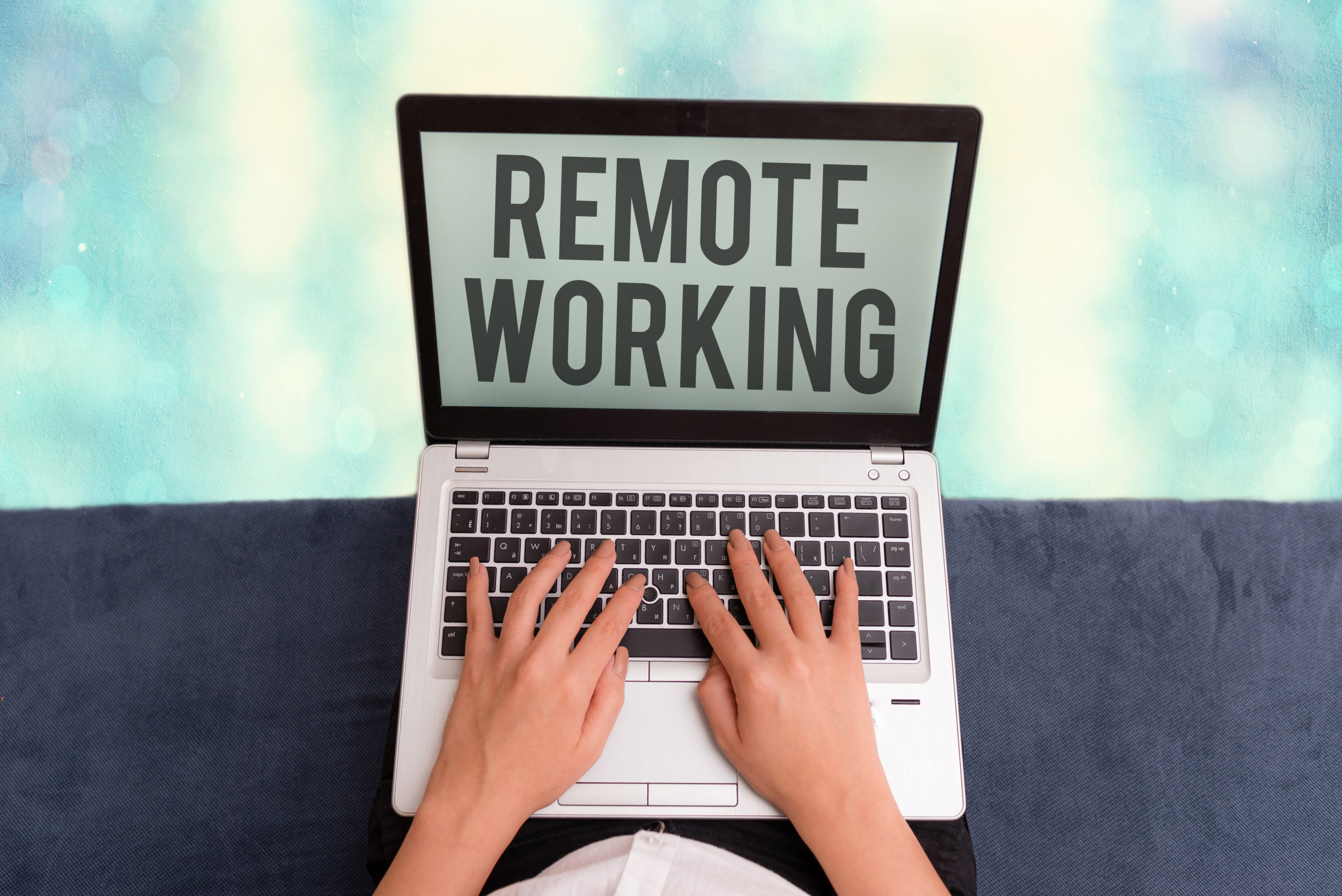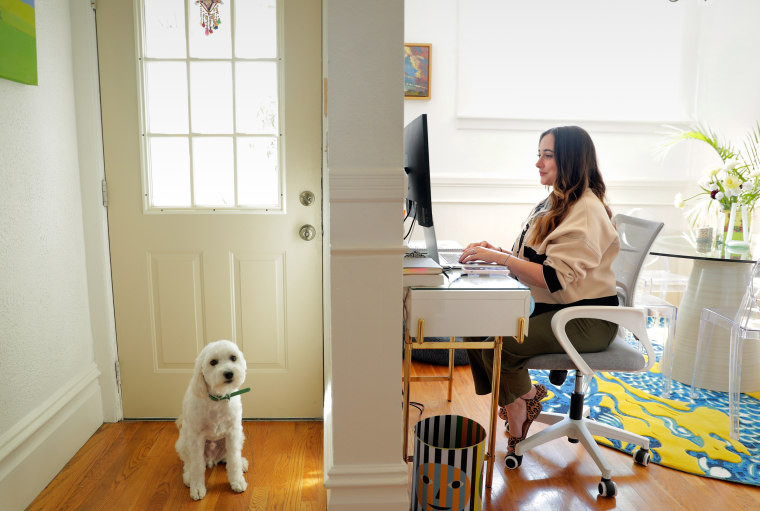The list of companies abandoning remote work is growing. Last week, Amazon CEO Andy Jassy told corporate staffers that they would need to be in the office five days a week starting in January, up from the previous three-day policy. This is part of the firm's bid to return to how things were before the COVID-19 pandemic. Earlier this month, Big Four firm PwC announced to its 26,000 UK employees that they must spend at least three days a week on-site or with clients starting in the new year. The accounting giant will begin tracking their working locations to ensure these requirements are being met. Citigroup, HSBC, Barclays, JPMorgan, and Goldman Sachs are all among the companies that have mandated at least some workers to return to the workplace five days a week.
The office isn't dead. But for some experts, remote work won't die either. If anything, it will only become more of a perk. For Kate Palmer, the employment services director at Peninsula UK, a human resources, employment law, and health and safety services provider, if return-to-office mandates become even more common, the companies that continue to offer flexible work patterns will start to really push them to recruit new staff. "There's a big race for talent out there," she told Business Insider, adding that "attracting talent into a business is hard these days." Palmer said if remote and hybrid work options make a business stand out as an employer of choice, it will likely start highlighting that in job ads and descriptions. The firm would also probably raise it as a perk in interviews to differentiate from the competition.
Daniel Wheatley, a reader in business and labor economics at the University of Birmingham, said applicants in a post-pandemic world probably just expect remote work to be part of the package. Now that high-profile employers like Amazon are beginning to reverse this norm, flexible work will once again become an important part of the recruitment process for companies that stick to it. "That would have been very common before the pandemic," Wheatley told BI, referring to working remotely's pre-pandemic status as a perk. The work-from-home experience is different for everyone. Some have expressed feeling isolated from their colleagues and unable to adjust to online communication. One tech startup remote worker previously told BI that they eventually quit their job because they felt less connected to their company, having lost the personal trust and camaraderie of being in the office. For others, flexible work has become a game changer and one they can't see themselves looking back on. Many cite being more productive and are grateful for the money saved from cutting back on transportation, work lunches, and in some cases, even rent.
Wheatley said some employers will start to move back to pre-COVID-19 work habits, trying to replicate what the office used to be like. In contrast, other companies will continue to embrace the advantages of flexible work. Strict RTO mandates could be quite detrimental to recruitment, he said. "I think there are a lot of benefits to be had from maintaining this push for remote and hybrid work," he said, adding that we may start to see a rise in people applying for companies that offer these options. Amazon declined to comment when contacted by Business Insider but pointed to the memo Jassy sent to employees, in which he said the company continues "to believe that the advantages of being together in the office are significant. We've observed that it's easier for our teammates to learn, model, practice, and strengthen our culture; collaborating, brainstorming, and inventing are simpler and more effective; teaching and learning from one another are more seamless; and, teams tend to be better connected to one another," Jassy wrote.
The Rise of Flexible Work as a Social Norm
As hybrid and remote working grows in popularity, companies risk alienating and losing talented employees to businesses with greater flexibility and work-life balance. KPMG’s 10th annual CEO Outlook survey has shown that globally there is a belief among CEOs that working life has the potential to return to pre-pandemic systems in the next three years, with 90pc of responding leadership in the Republic of Ireland saying so. By now, many of us will have heard of Amazon’s plans to end remote or flexible working, with a return to the office order to come into effect from 2025 onwards. Amazon CEO Andy Jassy has stated that the move is an effort to strengthen Amazon’s culture and teams, but with more and more people prioritising jobs that offer less rigid schedules, are companies failing to recognise that flexible working is the new social norm?
For Dr Sarah Kieran, an associate professor of work and employment studies in the Kemmy Business School at the University of Limerick, businesses that refuse to engage with flexible working because it is challenging to reorient an organisation will likely have issues attracting and retaining employees in the future. "Most organisations today offer a range of flexible working practices where they can still meet the needs of the operation," Kieran told SiliconRepublic.com. "This is not and should not be confined to working from home but also more remote working, part-time options, flexible working times, taking school term time off or compressed working weeks." She warned of the potential implications associated with forcing employees back into an office, such as decreased job satisfaction, lower levels of commitment, increased attrition rates, presenteeism and eventually, quiet quitting until that employee finds a more flexible workplace. As it stands in Ireland and indeed in many countries around the world, employees have a legal right to request remote working options. You have to have at least six months under your belt before the arrangement can come into effect and you likely will work the same hours as you would have in an in-person capacity. "However, currently this is only a right to request, not a right to be accommodated. While these arrangements have been evidenced to show positive outcomes for all stakeholders – the employee and the organisation – many organisations still disregard this evidence in favour of older, more traditional ‘command and control’ models of management." For Kieran, the employee/employer relationship is built on a foundation of mutual trust and when organisations enforce working standards that are in conflict with modern lifestyles, particularly when they fail to acknowledge issues such as commuting times and carer duties, they are in breach of that trust.
Organizations That Embrace Flexible Work May Have an Advantage
More than half of Irish businesses could envisage paying staff a premium to work from the office, although few anticipate a return to the five-day office week, according to a new report from adviser JLL. Despite the challenging commercial real estate landscape and mixed economic environment, Irish business leaders are bullish on the future, with two-thirds predicting that their corporate real estate budgets will increase between now and 2030. In the global JLL Future of Work Survey 2024, 55% of Ireland-based business leaders said they were very likely to introduce different pay and benefits for employees who attend the office regularly and those who work completely remotely. This is above the 39% average for Europe. In areas where long commutes are an obstacle to getting employees in the same building, the survey says 56% of organisations would consider having workspaces, answering, "We will supplement primary locations with a network of workspaces closer to where our employees live." In all, 62% of Irish respondents expect to increase the use of office space, while more than half plan to grow their total footprint over the next five years. Forty-seven per cent of organisations are what JLL described as "office advocates" that would like to see staff in the office five days a week — an increase compared with the global average of 34% in 2022. However, most employers said hybrid work will remain in place, although they expected the office to be integral to the workplace. Fifty-seven per cent of Irish respondents identified as "hybrid promoters," characterizing a policy of at least one to four days in the office, and 64% expected the number of in-office days to increase by 2030, above the global average of 43%.
"In Ireland, the survey shows clear evidence that the traditional work week has been resigned to the history books but the long-term narrative of what the workplace will look like in 2030 has yet to be written," JLL Ireland Head of Research Niall Gargan said in a statement. "Employees want greater flexibility, and this will restructure how office space is utilised. This is reflected in the survey results: 50% of our Irish respondents envision that by the end of the decade, office spaces might only open on certain days of the week. Additionally, 53% envision that the four-day working week will be a potential scenario for their organisation by the end of the decade."
The Future of Work: Flexibility and Employee Wellbeing
Ultimately, for Kieran, progressive organisations understand how flexible and remote working practices are a key aspect of the modern-day workplace. While it may not be an easy transition for organisations to make, a careful approach with significant investment and consideration of employee wellbeing is vital. In some cases, entire company models may need to be reassessed, but the organisations that make an effort and listen to their employees are the ones who will likely come out on top, ahead of those who don’t.


















